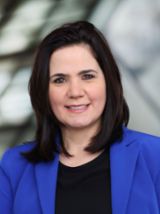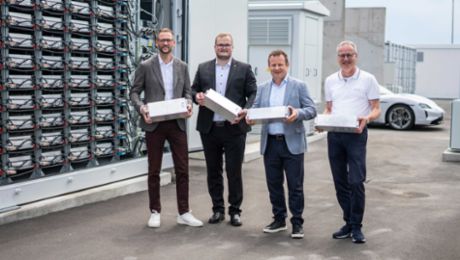Porsche aims to promote the circular economy in the manufacturing of its vehicles and has set itself the goal of increasing the proportion of recycled materials in its vehicles.
Gasification is a form of chemical recycling that can be used to convert mixed waste streams into valuable new raw materials, for example for plastics production. In the future, it could be an alternative to the current thermal recovery process and complement Porsche's circular economy strategy. Chemical recycling enables the processing of plastic waste that cannot be mechanically recycled for technical, economic or ecological reasons.
The pilot project serves to evaluate the potential of automotive shredder residue as a future source of recyclate. The completed trial used a recycling process that, for the first time, completely dispenses with fossil-based input and instead uses bio-based raw materials – such as wood chips – in addition to automotive waste. Advanced gasification technology is used to convert plastic waste into synthesis gas at high temperatures.
Within the BASF production network that integrates this synthesis gas, new plastic is produced for component manufacturers – a so-called polyurethane formulation. As part of the pilot project, the formulation was used for new steering wheels. The recycled raw material was attributed to the new plastic using a mass balance approach (*).
“Pilot projects like these allow us to evaluate how we can further develop the circular economy as a sustainability field at Porsche and how we can anchor chemical recycling in our strategy in the long term,” says Dr. Robert Kallenberg, Head of Sustainability at Porsche AG. ‘We are testing new recycling technologies with our partners in order to increase recyclate quotas, gain access to previously unusable recyclate sources and evaluate new processes for waste streams that are currently being thermally utilised.’
"BASF offers a wide range of recycling solutions and we strongly believe that different recycling technologies have to add up to a wide spectrum to achieve recycling targets. We prioritize mechanical recycling and continuously improve its efficiency. The type of waste and the level of sorting determine which technology is most suitable. We are convinced that complementary technologies like chemical recycling are needed to deal with the remaining waste that is still incinerated today," explains Martin Jung, President of BASF’s Performance Materials division.
The raw materials produced from gasification are of comparable quality to conventional raw materials. The resulting products meet the requirements for high-performance plastics and can therefore also be used in safety-relevant components.
(*) Mass Balance concept
When fed into large, complex and continuously operated production facilities, these new circular raw materials are mixed with conventional fossil raw materials and processed into plastic precursors. The new (secondary) raw materials are attributed using the mass balance method. Products and sites are certified by independent auditors according to internationally recognised systems such as ISCCPLUS or REDcert².
Circular economy at Porsche
Porsche strives for a responsible and resource-conserving use of raw materials as well as a long-lasting utilisation of the vehicles and the materials used in them. As part of its ‘Circular Economy’ sustainability strategy field, Porsche aims to promote the use of more ecologically sustainable materials and circularity concepts along the value chain of its vehicles. This includes projects such as closed-loop concepts for high-voltage batteries, the use of circular materials, the avoidance of waste and the remanufacturing of vehicle components.

